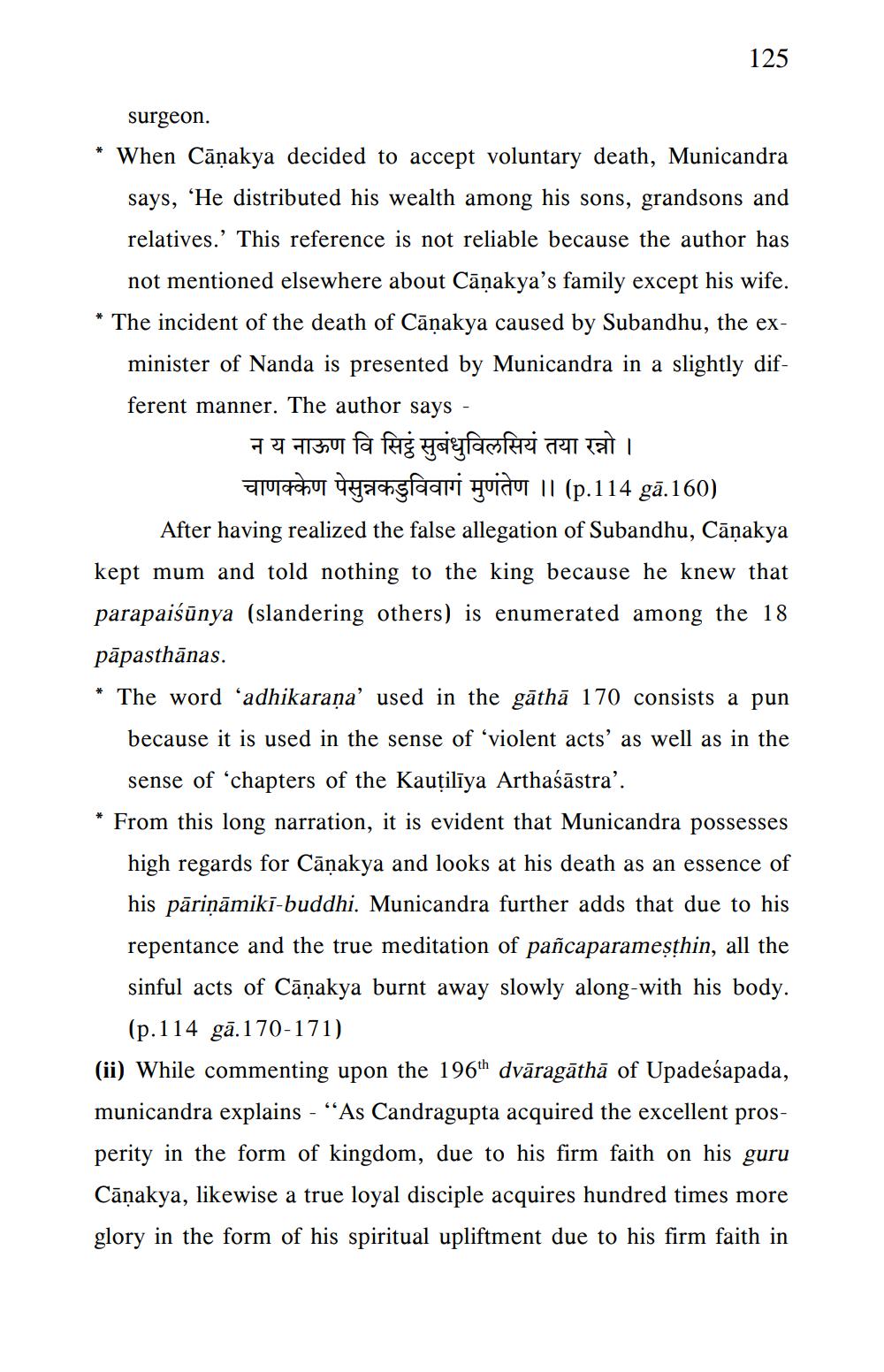________________
125
surgeon.
When Caṇakya decided to accept voluntary death, Municandra says, 'He distributed his wealth among his sons, grandsons and relatives.' This reference is not reliable because the author has not mentioned elsewhere about Caṇakya's family except his wife. * The incident of the death of Caṇakya caused by Subandhu, the exminister of Nanda is presented by Municandra in a slightly different manner. The author says
7 0 734 fa fuż ydyfamfuri au eat |
चाणक्केण पेसुन्नकडुविवागं मुणंतेण ।। (p. 114 gā.160)
After having realized the false allegation of Subandhu, Cāṇakya kept mum and told nothing to the king because he knew that parapaiśūnya (slandering others) is enumerated among the 18 pāpasthānas.
The word 'adhikaraṇa' used in the gathā 170 consists a pun because it is used in the sense of 'violent acts' as well as in the sense of 'chapters of the Kauṭiliya Arthaśāstra'.
* From this long narration, it is evident that Municandra possesses high regards for Cāṇakya and looks at his death as an essence of his pāriņāmiki-buddhi. Municandra further adds that due to his repentance and the true meditation of pañcaparameṣṭhin, all the sinful acts of Cāṇakya burnt away slowly along with his body. (p.114 gā.170-171)
(ii) While commenting upon the 196th dvāragāthā of Upadeśapada, municandra explains - "As Candragupta acquired the excellent prosperity in the form of kingdom, due to his firm faith on his guru Cāṇakya, likewise a true loyal disciple acquires hundred times more glory in the form of his spiritual upliftment due to his firm faith in




